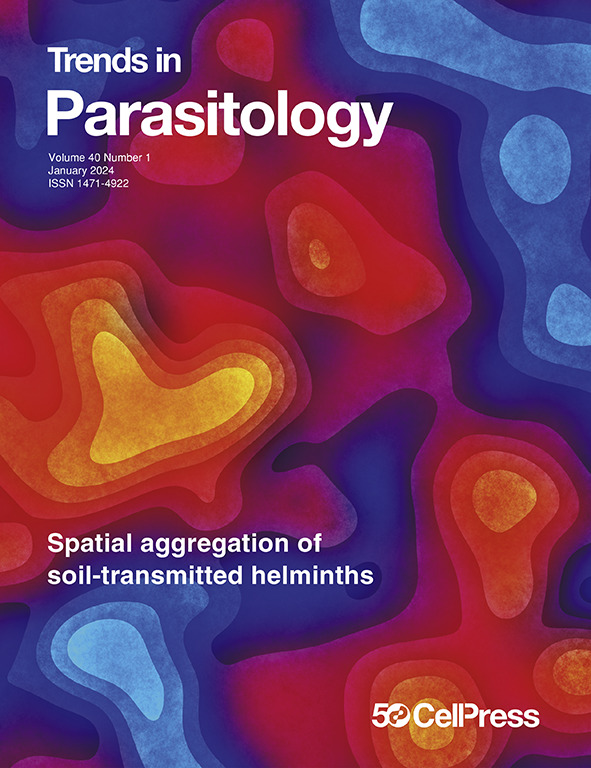一种解释疟疾引起的神经认知后遗症的假说。
IF 7
1区 医学
Q1 PARASITOLOGY
引用次数: 0
摘要
疟疾诱发的神经认知和行为后遗症的发展过程尚不完全清楚。我们假设,疟原虫感染导致的肝功能障碍是疟疾引发的神经认知和行为后遗症的原因。我们的代谢假说不仅能解释脑疟疾(CM)后的神经认知后遗症,还能解释其他严重、非严重和无症状疟疾感染后的神经认知后遗症。本文章由计算机程序翻译,如有差异,请以英文原文为准。
A hypothesis to explain malaria-induced neurocognitive sequelae.
The development of malaria-induced neurocognitive and behavioral sequelae is not entirely understood. We hypothesize that liver dysfunction caused by Plasmodium infection is responsible for malaria-induced neurocognitive and behavioral sequelae. Our metabolic hypothesis not only explains neurocognitive sequelae after cerebral malaria (CM) but also after other severe, non-severe, and asymptomatic malaria infections.
求助全文
通过发布文献求助,成功后即可免费获取论文全文。
去求助
来源期刊

Trends in parasitology
医学-寄生虫学
CiteScore
14.00
自引率
3.10%
发文量
148
审稿时长
6-12 weeks
期刊介绍:
Since its inception as Parasitology Today in 1985, Trends in Parasitology has evolved into a highly esteemed review journal of global significance, reflecting the importance of medical and veterinary parasites worldwide. The journal serves as a hub for communication among researchers across all disciplines of parasitology, encompassing endoparasites, ectoparasites, transmission vectors, and susceptible hosts.
Each monthly issue of Trends in Parasitology offers authoritative, cutting-edge, and yet accessible review articles, providing a balanced and comprehensive overview, along with opinion pieces offering personal and novel perspectives. Additionally, the journal publishes a variety of short articles designed to inform and stimulate thoughts in a lively and widely-accessible manner. These include Science & Society (discussing the interface between parasitology and the general public), Spotlight (highlighting recently published research articles), Forum (presenting single-point hypotheses), Parasite/Vector of the Month (featuring a modular display of the selected species), Letter (providing responses to recent articles in Trends in Parasitology), and Trendstalk (conducting interviews). Please note that the journal exclusively publishes literature reviews based on published data, with systematic reviews, meta-analysis, and unpublished primary research falling outside our scope.
 求助内容:
求助内容: 应助结果提醒方式:
应助结果提醒方式:


